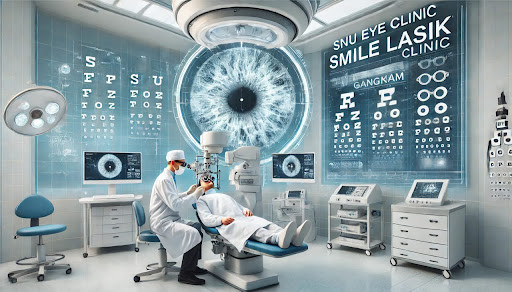Our eyes are among the most vital yet vulnerable organs in the body, and maintaining good vision is essential for overall well-being. With the increasing prevalence of screen-related eye strain, age-related vision decline, and environmental challenges, proactive eye care has never been more important. Ophthalmologists—the medical doctors specializing in eye and vision care—emphasize the importance of daily habits and preventive strategies to protect eye health. Here are the top 10 snu eye clinic lasik surgery success rate expert-recommended tips to help you preserve your vision and maintain healthy eyes throughout life.

- Schedule Regular Comprehensive Eye Exams
Ophthalmologists recommend routine eye exams as the cornerstone of eye health. Even if you don’t wear glasses or contacts, comprehensive eye checks every 1–2 years can detect early signs of conditions like glaucoma, cataracts, macular degeneration, and diabetic retinopathy. Early detection is key to preventing irreversible vision loss, especially since many eye diseases develop gradually and without noticeable symptoms. - Follow the 20-20-20 Rule for Digital Screen Use
With more time spent on computers, phones, and tablets, digital eye strain has become a modern epidemic. To reduce fatigue, ophthalmologists advise practicing the 20-20-20 rule: every 20 minutes, look at something 20 feet away for at least 20 seconds. This simple practice gives your eye muscles a break and helps prevent symptoms like dryness, blurriness, and headaches. - Wear UV-Protective Sunglasses
Prolonged exposure to ultraviolet (UV) rays increases the risk of cataracts, pterygium, and macular degeneration. To protect your eyes, wear sunglasses that block 100% of UVA and UVB rays, even on cloudy days. Wraparound frames offer added protection by preventing UV light from entering from the sides. - Eat a Nutrient-Rich Diet for Eye Health
Nutrition plays a significant role in maintaining good vision. A diet rich in leafy greens, carrots, sweet potatoes, citrus fruits, and fish high in omega-3 fatty acids supports retinal health and may help delay or prevent age-related eye problems. Key nutrients like lutein, zeaxanthin, vitamin C, vitamin E, and zinc have been linked to lower risks of AMD and cataracts. - Quit Smoking and Avoid Exposure to Smoke
Smoking dramatically increases the risk of several eye diseases, including cataracts, macular degeneration, and optic nerve damage. Even secondhand smoke can contribute to dry eyes and irritation. Ophthalmologists strongly urge patients to quit smoking to protect both eye and overall health. - Use Proper Lighting and Ergonomics When Reading or Working
Straining your eyes in poor lighting or using incorrect screen settings can contribute to visual fatigue. Ensure that your work and reading environments are well-lit, with balanced contrast. Adjust your computer screen to be at eye level, and use anti-glare screens or glasses if necessary. A good ergonomic setup supports long-term eye comfort and productivity. - Practice Good Contact Lens Hygiene
For those who wear contact lenses, cleanliness is crucial. Always wash hands before handling lenses, disinfect them properly, and never sleep in lenses not designed for overnight use. Poor hygiene can lead to infections like keratitis, which can result in pain, redness, and even permanent vision loss. - Stay Hydrated to Combat Dry Eyes
Dehydration can exacerbate dry eye symptoms, particularly in dry or air-conditioned environments. Drinking adequate water helps maintain a healthy tear film, which is essential for eye lubrication. For persistent dryness, ophthalmologists may recommend lubricating eye drops or lifestyle changes such as using a humidifier. - Protect Your Eyes from Injury
Everyday activities like home repairs, sports, or even cooking can pose risks to your eyes. Wear appropriate safety goggles or protective eyewear during tasks that involve flying debris, chemicals, or potential impact. This simple precaution can prevent serious and sometimes permanent injuries. - Manage Chronic Health Conditions
Diseases like diabetes, hypertension, and autoimmune disorders can affect your eyes. For example, diabetic retinopathy is a leading cause of blindness but can often be prevented with good blood sugar control. Regular eye exams and close coordination with your healthcare providers help manage these conditions and their impact on vision.
In conclusion, protecting your eyes is a lifelong commitment that requires awareness, preventive care, and healthy habits. These ten ophthalmologist-recommended tips offer a comprehensive approach to safeguarding your vision, whether you’re managing digital fatigue, age-related concerns, or general wellness. Remember, healthy eyes contribute not just to how you see the world, but how fully you can engage with it. Make these practices part of your daily routine—and give your eyes the care they deserve.
